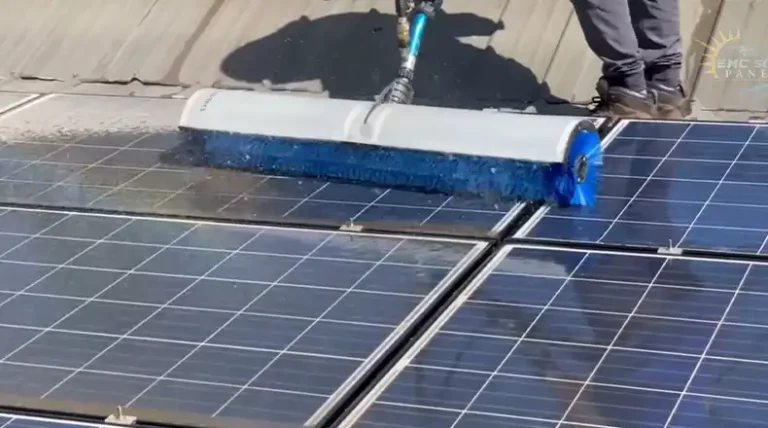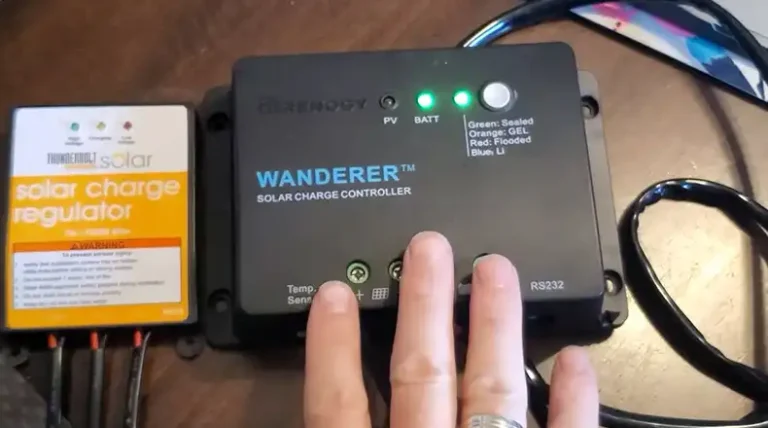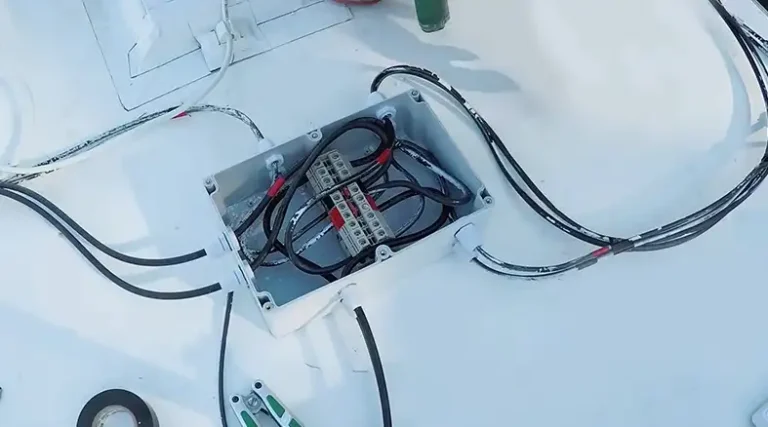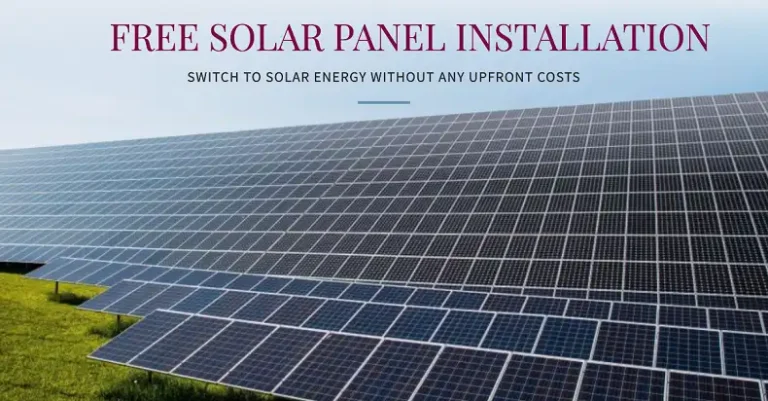Best Practices for Solar Panel Maintenance | Explained
If you’ve got solar panels, you’re probably pretty excited about using clean energy. But did you know these panels need some care to keep working their best? Don’t worry, it’s not too hard. I’ve been working with solar panels for a long time, and I’m here to share some easy tips to keep your solar setup in great shape.
In this article, I’ll tell you about the simple things you can do to make your solar panels last longer and work better. We’ll talk about how to clean them, what to look out for, and how to keep an eye on how well they’re doing. It’s all stuff you can handle, and I’ll explain it in a way that’s easy to understand. So, let’s get started and learn how to take good care of your solar panels!
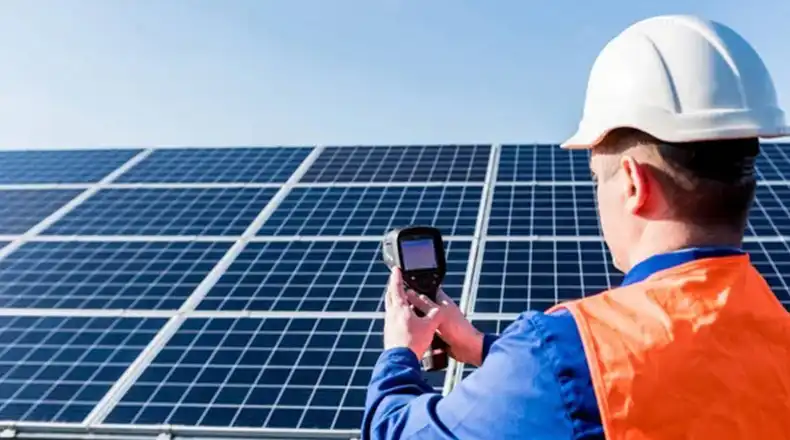
Do Proper Cleaning
Keeping your solar panels clean is like giving them a boost of energy. It’s one of the simplest yet most effective ways to maintain their efficiency.
What Should be the Cleaning Frequency?
You might be wondering how often you need to grab that squeegee and get to work. Well, it depends on a few factors:
- Location: If you live in a dusty area or near polluting industries, you’ll need to clean more frequently.
- Weather: Rainy seasons might help keep your panels cleaner, but pollen and bird droppings can accumulate quickly.
- Tilt of panels: Flatter panels tend to collect more dirt and need more frequent cleaning.
In general, I recommend cleaning your panels at least twice a year. However, if you notice a significant drop in energy production, it might be time for an extra wash.
Safety Precautions while Cleaning Solar Panels
Before you start cleaning, safety should be your top priority. Here are some precautions I always follow:
- Choose a cool, overcast day to clean. Panels can get hot in the sun!
- Turn off your solar system before cleaning.
- If your panels are on the roof, use proper fall protection equipment.
- Avoid standing directly on the panels – they’re not designed to support your weight.
- Use non-abrasive tools to prevent scratching the panels.
Remember, if you’re not comfortable cleaning the panels yourself, it’s always better to call in the professionals.
Cleaning Methods You Can Follow
For cleaning the solar panels, you will get many methods. Here’s my tried-and-true method:
- Rinse with cool water: Start by spraying the panels with a garden hose to remove loose dirt and debris. Avoid using high-pressure washers as they can damage the panels.
- Wipe with soft, non-abrasive cloth: If there’s stubborn grime, use a soft sponge or cloth with mild, non-abrasive soap. Gently wipe the surface, being careful not to scratch it.
- Rinse again: Give the panels a final rinse to remove any soap residue.
- Let air dry: Allow the panels to air dry naturally. Avoid using towels, as they can leave behind lint or scratches.
Pro tip: I always use distilled or deionized water for the final rinse. It prevents mineral deposits from forming on the panels, which can reduce efficiency over time.
Perform Visual Inspection
Regular visual inspections are crucial for catching potential issues before they become major problems. It’s like giving your solar panels a health check-up!
During Cleaning or Other Maintenance
While you’re up there cleaning your panels, it’s the perfect time to give them a thorough once-over. Here’s what I always look out for:
- Cracks: Even small cracks can lead to big problems if left unchecked.
- Breaks: Any visible damage to the panel surface needs immediate attention.
- Loose electrical connections: These can cause efficiency drops and even pose safety risks.
I also check the mounting hardware to ensure everything is secure. Loose panels can be dangerous and inefficient.
Don’t forget to inspect the areas around your panels too. Look for any signs of water damage or pest infestations that could impact your system’s performance.
Action for Damage: Contact solar professional
If you spot any issues during your inspection, it’s crucial to act fast. While it might be tempting to try and fix things yourself, I always recommend contacting a solar professional. Here’s why:
- Expertise: Solar professionals have the knowledge and tools to diagnose and fix issues correctly.
- Safety: Working with electrical systems can be dangerous if you’re not properly trained.
- Warranty protection: DIY repairs might void your warranty. Let the pros handle it to keep your coverage intact.
When you call a professional, be sure to describe what you’ve observed in detail. Take photos if you can – this can help the technician prepare for the repair visit.
Do Proper Monitoring
Monitoring your solar panel system is like keeping an eye on your car’s dashboard. It helps you catch issues early and ensures you’re getting the most out of your investment.
Use Solar System Monitoring Software (if available)
Many modern solar installations come with monitoring software. If you have this, it’s a goldmine of information! Here’s how I make the most of it:
- Familiarize yourself with the interface: Take some time to understand what all the numbers and graphs mean.
- Set up alerts: Configure the software to notify you if production drops below a certain threshold.
- Check regularly: I make it a habit to look at my system’s performance at least once a week.
If your system didn’t come with monitoring software, don’t worry! There are third-party options available that can help you keep tabs on your solar setup.
Track Energy Production Data
Keeping an eye on your energy production is crucial. It’s not just about total output – patterns matter too. Here’s what I pay attention to:
- Daily production: Look for consistent output on similar weather days.
- Seasonal variations: Understand how your system performs in different seasons.
- Year-over-year comparisons: This helps you spot long-term trends or degradation.
I like to keep a simple spreadsheet to track this data. It’s satisfying to see those kilowatt-hours adding up!
Identify Potential Problems Early
The real power of monitoring is catching problems before they become serious. Here are some red flags I watch out for:
- Sudden drops in production: If output falls significantly on a sunny day, something might be wrong.
- Gradual decline over time: This could indicate panel degradation or buildup of dirt.
- Inconsistent performance: If some days are much lower than others without an obvious reason, it’s worth investigating.
Remember, not all dips in production are cause for alarm. Cloudy weather, seasonal changes, and even bird droppings can temporarily affect output. The key is to look for unexplained patterns.
Questions You May Also Ask
Can I use a pressure washer to clean my solar panels?
No, I don’t recommend using a pressure washer. The high pressure can damage the panels and their protective coating. Stick to a garden hose with normal water pressure.
How much can dirt and dust affect my solar panel’s efficiency?
Dirt and dust can significantly impact your solar panels’ performance. In some cases, a layer of grime can reduce efficiency by up to 25%. That’s why regular cleaning is so important!
Is it normal for solar panel output to decrease over time?
Yes, it’s normal for solar panels to experience some degradation over time. Most panels are designed to maintain at least 80% of their original output after 25 years. However, sudden or rapid decreases in output should be investigated.
Conclusion
Maintaining your solar panels is a simple yet crucial step towards maximizing their lifespan and efficiency. By following these best practices – regular cleaning, visual inspection, and system monitoring – you’ll ensure your sunshine harvesters continue to deliver clean energy for years to come. Remember, a little TLC goes a long way!
If you have any further questions about solar panel maintenance or anything solar-related, feel free to leave a comment below. Happy sun-powered living!

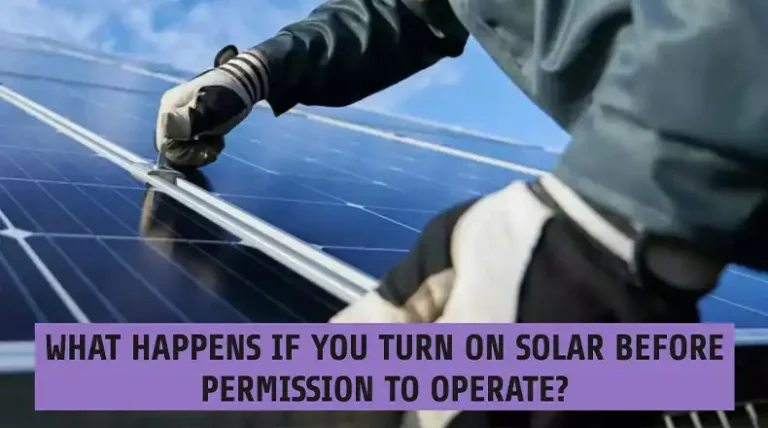
![[Answered] What Is a Safe Distance to Live From A Solar Farm?](https://www.itekenergy.com/wp-content/uploads/2023/07/What-Is-a-Safe-Distance-to-Live-From-A-Solar-Farm-768x428.webp)
